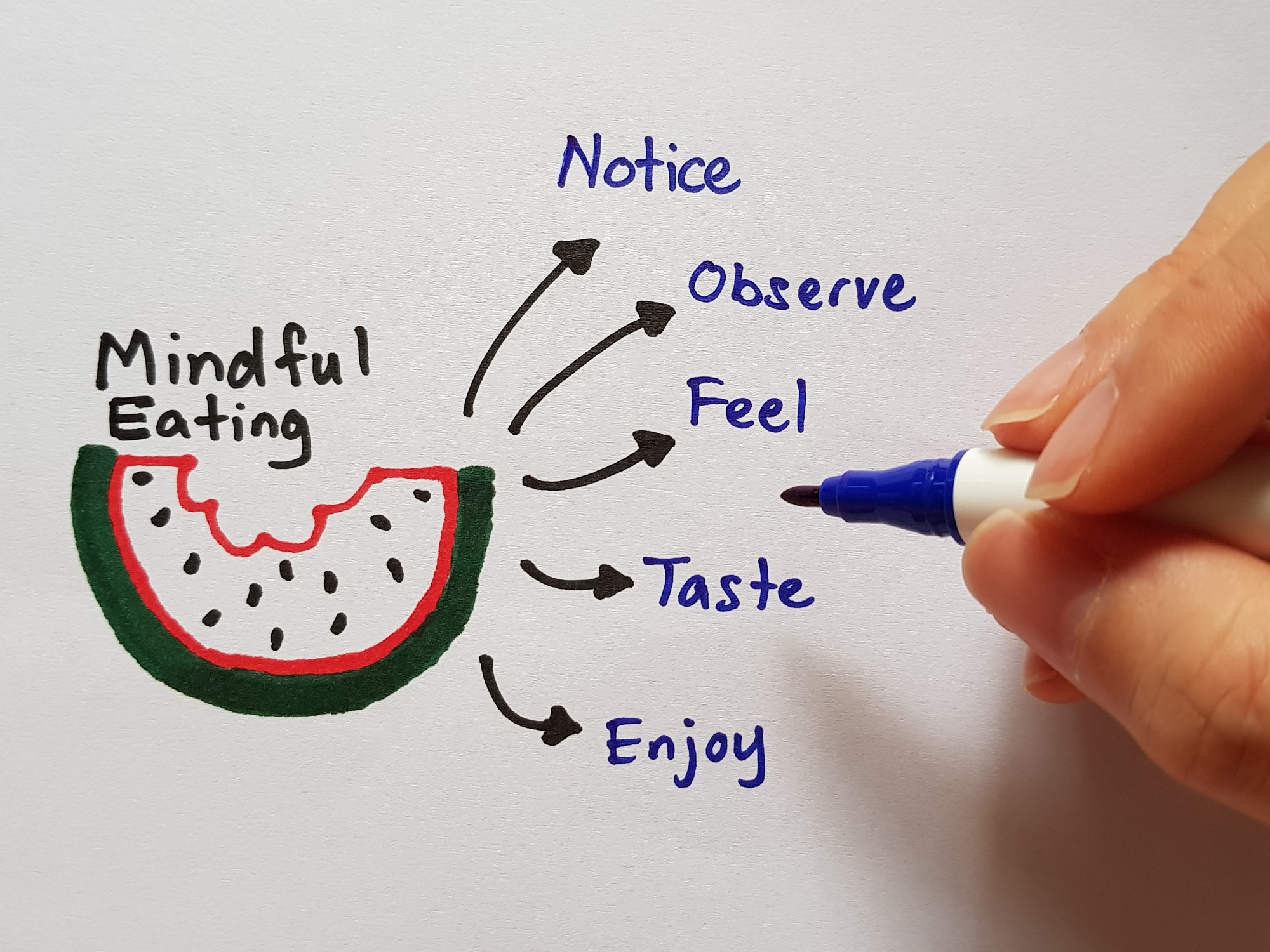University life can be a whirlwind of assignments, social events, and late-night study sessions. In the middle of all that chaos, it’s easy to grab whatever’s convenient, whether it’s fast food, energy drinks, or snacks to get you through the day. But eating mindfully can help you feel more in control, energized, and healthier.
Let’s explore how you can start eating more mindfully, even with your busy uni schedule.
What is Mindful Eating?
Mindful eating is about being present with your food. It involves tuning into your body’s hunger and fullness cues, paying attention to how your food makes you feel, and truly savoring each bite. Instead of rushing through meals or eating while distracted (think Netflix or cramming for exams), mindful eating encourages you to slow down, focus, and enjoy your food.
Why should you care about Mindful Eating?
As a uni student, you’re under a lot of pressure—whether it’s balancing coursework, maintaining a social life, or figuring out your future. It’s tempting to grab the easiest food option and go, but eating mindfully has some real benefits:
Reduces stress: Eating mindfully can actually help reduce stress by engaging your senses and grounding you in the moment. This can improve digestion, so you’re less likely to feel bloated or sluggish after a meal.
Prevents overeating: Being more in tune with your body can help prevent overeating. When you slow down and listen to your hunger cues, you’re more likely to stop when you’re full, avoiding that overstuffed feeling.
Improves your relationship with food: Many students turn to food for comfort during stressful times. While occasional comfort eating is normal, mindful eating helps break the cycle of emotional eating by encouraging you to address why you’re eating in the first place.
How can we practice mindful eating?
 #1 Eat without distractions
#1 Eat without distractions
When we eat our food with distractions around us it can prompt faster easting which may lead to overeating or unwanted digestive symptoms. For one meal of the day, try sitting down with no distractions and focusing on the present moment and meal.
#2 Take a few deep breaths and pause for calm before you eat
Taking a moment to pause and breathe helps to position your body and mind into a restful state and allows for proper digestion of your food. This means your body can utilise all of the the nutrients from the food. Before starting your meal, try taking 5 deep breaths.
#3 Eat slowly, take your time and appreciate each bite
Slowing down when eating helps to improve digestion, which may lead to weight loss and higher levels of satisfaction with your meal. Aim to finish your first mouthful before starting another one.
#4 Identify how foods makes you feel and choose food that nourishes your health and soul
Take note of how different foods make you feel and choose the ones that make you feel good. We know there is a link between your gut and brain, so selecting food that supports digestion and benefits your health will lead to overall wellbeing.
#5 Honour your hunger and fullness cues
Listen to the cues your body is giving you while eating. Does your stomach feel too full…or is it just right? Rather than overeating on certain foods as an emotional response, try and tune into your hunger signals and honour when you have either had enough or need more.
It’s important to remember that mindful eating isn't a new diet, it's a new skill to bring into your day. Any new habit takes time and practice, so be patient with yourself and over time you will develop a mindful way of eating.

